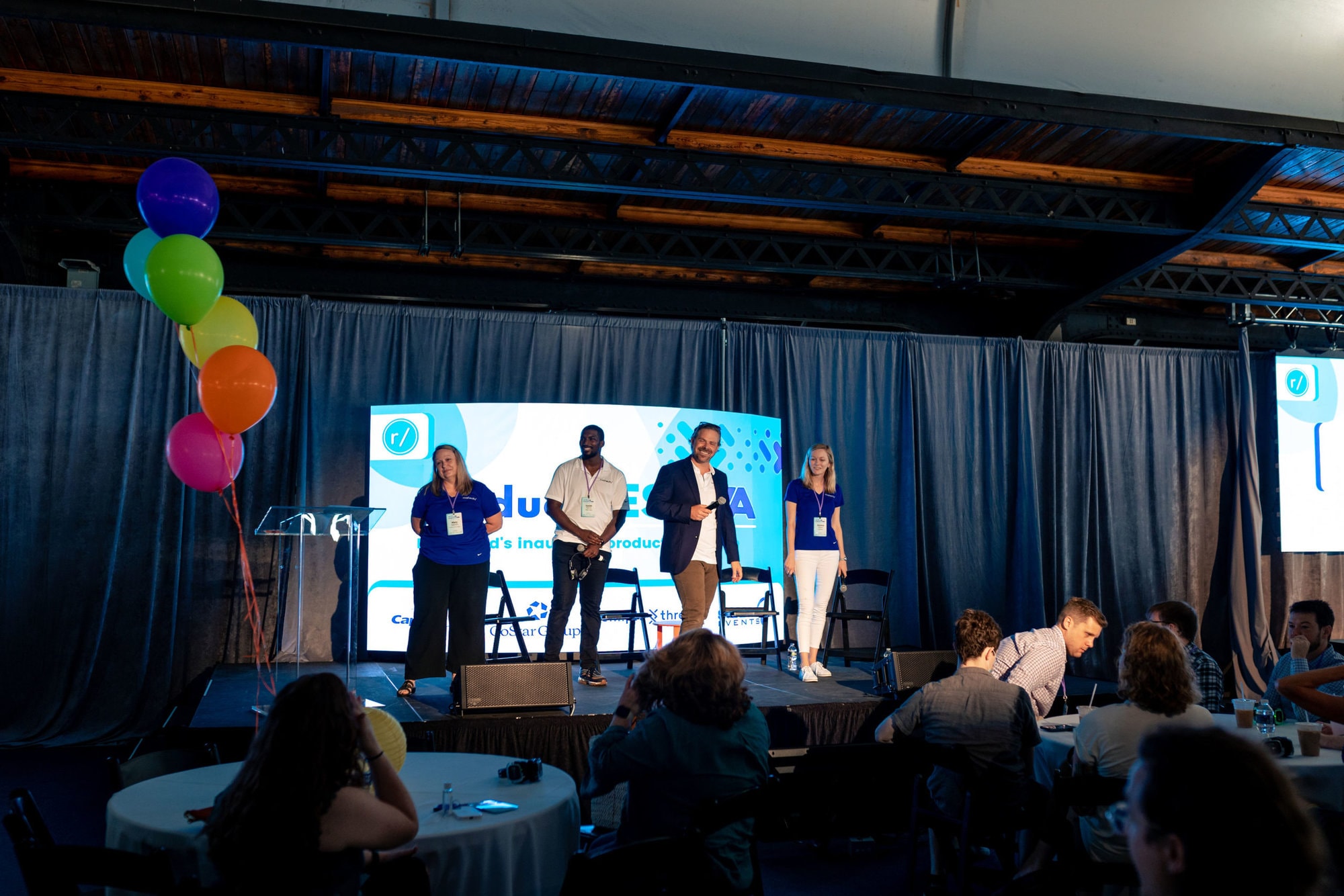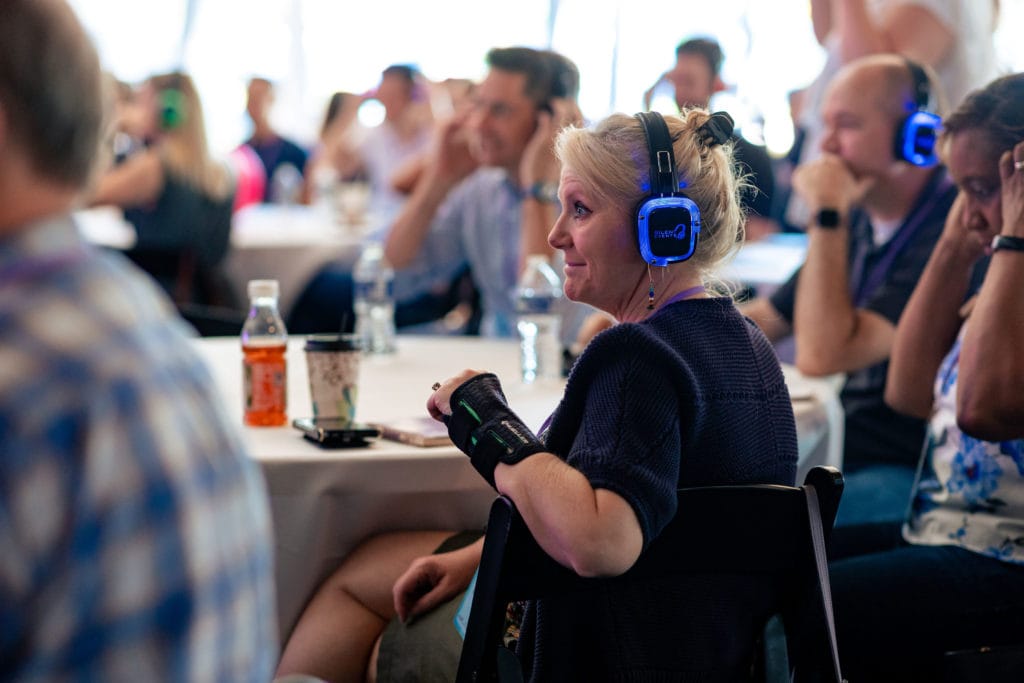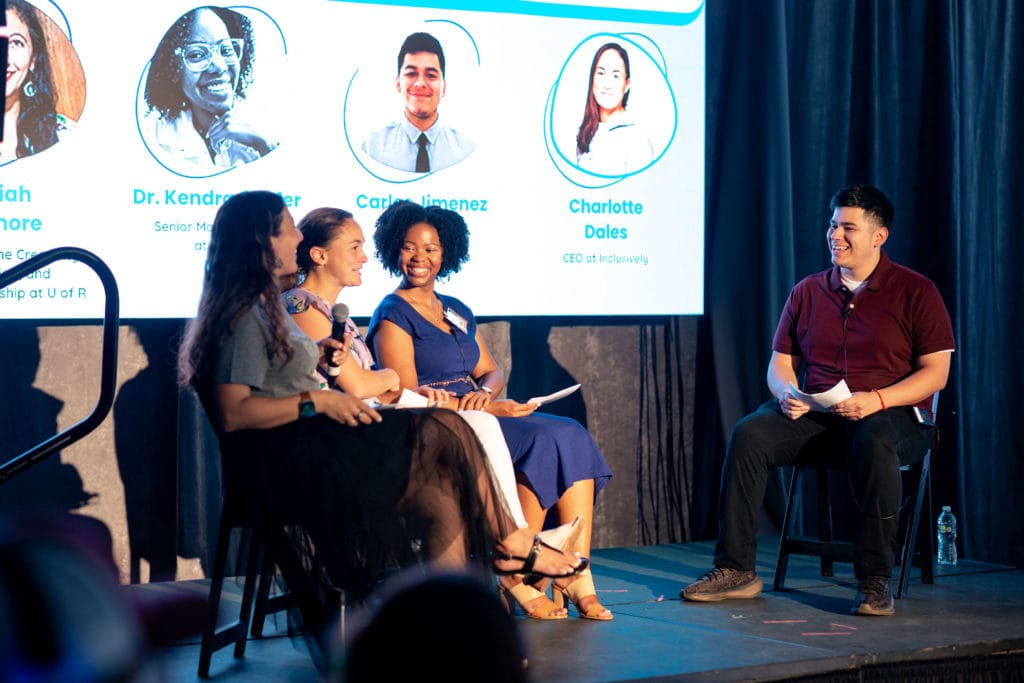
When it comes to digital products, we at Simple Thread love supporting product teams in their quest to deliver value for their customers through solving problems. To that end, Simple Thread sponsored Richmond’s first ProductFest RVA: an all-day event at the Science Museum of Virginia with speakers from Sony Entertainment, CarMax, Capital One, Vangst, Ceridian, and many more. Here’s some of our team’s takeaways from this event.
The State of Product in Richmond Is Strong
This was the first time in two years for Virginia to convene 350+ product managers, designers, engineers, and executives. It sounds trite, but it was a wonderful reminder to see that our small (but mighty!) region has impressive product people solving all kinds of interesting problems in innovative new ways.
As a town known for its healthcare, banking, CPG/Retail and public sector employers, it was invigorating to see how much investment in product management there is in our workforce and to hear about the product innovation taking place as a result right here in our region. Whether it be Fortune 500 businesses, nascent startups, or life-saving institutions, the strength of the product community in this region is undeniably impressive.

Great Product Teams Are Not an Accident
No surprise here, but just like great user experience designers and engineering doesn’t happen without grounding frameworks, curiosity, intention, and discipline, the same is true for product managers on their career journey.

Abhi Agrawal gave a theoretical grounding for seven principles along with specific, tactical actions to take. He also gave guidance on how much effort each one would take, which helped me think how and when I could include them. We’ve included our three favorite principles below.
Principle 1: Transparency. Radical transparency, primarily through sprint updates. Transparency is a bridge to credibility and trust.
Principal 3: Everything is a draft. Even your presentation to executives can be a draft. Learn to be comfortable with uncertainty. Labeling your work and roadmaps as draft invites feedback, reinforces that we are always learning.
Principle 6: Hiring is hard. Using defined cases to evaluate with candidates helps with this. A good mix of business cases and technical cases can standardize the interview process and help ensure you’re getting less biased feedback.
Customer Validation + College Credits = Better Entrepreneurs
Prolific venture capitalist Mar Hershenson recently gave an excellent keynote in Miami on entrepreneurship and how it must be fostered through real-world trial and error. So it was heartening to hear from Garrett Westlake from the VCU Da Vinci Center talking about their Retail Lab program. The Lab is an example of how universities are forging a way to promote learning and real-world competence, not just education credits by letting students practice commerce and learn lessons about taking an idea all the way to market. You learn the hard lessons about each step in design and packaging and marketing, from conceiving the idea to finally getting the satisfaction of seeing your product sitting on a shelf.
Beware of Bias
The concept of bias was a theme that came up repeatedly throughout the day. While being able to make snap decisions has value in quickly iterating products and getting them to market, bias can be a shadow value of which we must be mindful. Bias can manifest when we validate our priors, use recent experience to pave over larger historical truths, and most importantly in the composition of teams. Dr. Kendra Cabler (Etsy), Somiah Lattimore (University of Richmond) and Charlotte Dales (Inclusively) discussed this topic and shared the business case for diversity and inclusion.
Teams that are diverse have consistently proved themselves to be more resilient, innovative, and effective than homogenous teams. This is largely because the experiences of their collective brain is more able to adapt and think about more possibilities.

Solving Absurd Problems Requires Absurd People
The importance of psychological safety and trust among a product team has long been established. But when a new team comes together, or even when new people join an existing team there are barriers to that safety and trust. These barriers can be heightened by the goal orientation of a team … sometimes passion or zeal for solving problems can come across to newcomers as unfriendliness or elitism.
Grayson Scott from Sony Music Entertainment shattered the notion of taking things too seriously on a team. Scott warned about the missed opportunity of building bonds and relationships with coworkers and how that can lead to better products. Scott went out of his way to demonstrate that as a lead it was essential to be vulnerable. That even showing oneself as ridiculous (since we all are in one way or another) and the deep magic that has in building lasting relationships … ultimately in the service of building great products.
Looking Forward
Lastly, we want to thank everyone who made RVA ProductFest such an exhilarating experience for our team. Our team came away inspired and with new relationships we look to take forward in 2022. I can’t wait to see how ProductFest and this community evolve in the coming year!
Loved the article? Hated it? Didn’t even read it?
We’d love to hear from you.


